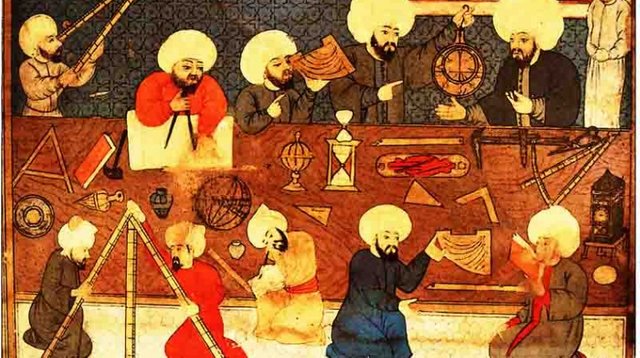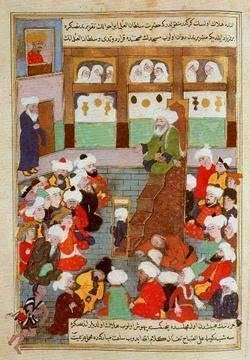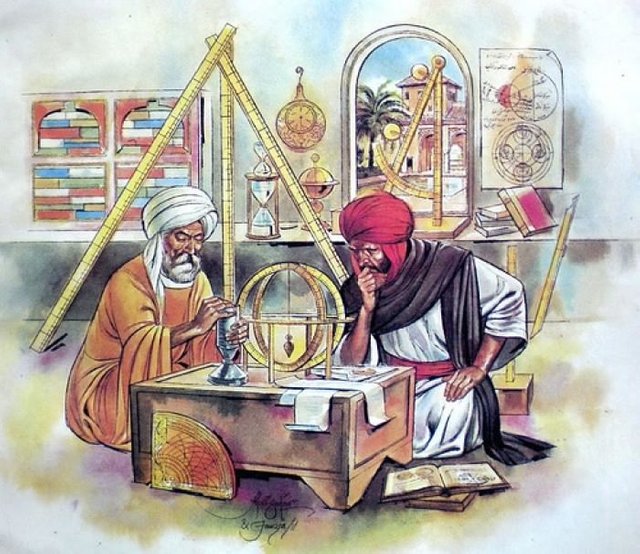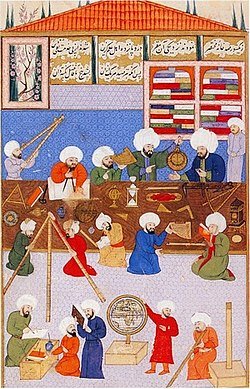Library As A Window Of Civilization
The library of al-Shahib bin `Abbād, 4th century H contains more than books that exist in all European countries
1001 Inventions DR. Hamid Fahmy Zarkasyi in his book entitled "Islamic Civilization of Meaning and Development Strategy" (2015: 10) cited the statement of Muslim Sociologist Agung Ibn Khaldun, that the substance of civilization is a science. In the golden history of Muslim civilization, it is evident that they pay a great deal of respect to the works of science (Nakosteen 1996: 87)
One of the windows of science is the book which later developed into a library. Thus, it can be said that the library is a window of civilization. Great libraries in the history of Muslims as the most real proof that Islamic civilization ever existed in the dynamics of world civilization. Through the library, Islamic civilization not only became a pillar of civilization world at that time, but also became a window for other nations who wanted a high civilization.
At that time, Muslim scholars and scientists placed great respect on the book. Muhyiddin Ibn 'Arabi for example in "Muhâdharât al-Abrâr wa Musâmarah al-Akhyâr" -as quoted by Ahmad Shalaby in the "History of Muslim Education" (1954: 75) - his book as a guest who can briefly stay, live together, become self-image, even as a member of the human body. At other times, he likened the book as a botanical garden, as a mouthpiece for the dead and a spokesman for the living.

Sumber gambar
Another case with Jâhiz. His illustration of the book is quite interesting. For him, the book will be silent as long as the reader needs solitude; will speak fluently if the reader needs discourse; never interrupts the reader while speaking; when the lonely reader, he can be a good companion; as friends who never cheat or praise the reader; as well as a friend who is not boring. So it is not surprising that, in the history of many Muslim civilization established libraries that collect various high quality books.

Sumber gambar
In the golden age of Islam, libraries have become a necessity, whether in homes, government buildings, in villages, cities, in hospitals and so forth. The number of libraries can be seen in the book "Maadza Qaddama al-Muslimuuna li al-'alam" (2009: I / 223-225). In this book, Dr. Raghib As-Sirjani pointed out several kinds of libraries as proof of Muslim's love of the time towards science and books.
At least, there are five kinds of libraries at that time: First, the academy library (such as Baitul Hikmah). Secondly, special libraries (such as the Khalifah Library of Al-Mustanshir). Third, public libraries (such as: Cordova Library founded by Caliph al-Hakam al-Mustansir at 350 H / 961 AD). Fifth, school library (such as al-Faadhiliyah Library in Egypt). Fifth, the library of the mosque (such as Al-Azhar Library and al-Qairuwan).
At that time, the library loves not only individuals, even the state's appreciation is so high. Caliph Ma'mun -same Caliph Daula Abbasiyah-for example, to reward gold for book translators, (Ibn Abi Ushaibah, Uyûnu al-Anbâ, II / 133). The authors of that period were strongly supported and respected by the state, so the productivity of writing was so high. One proof of their productivity can be seen from the number of libraries.

Sumber gambar
Among the great library examples in Islam are: The Baghdad Library (which is so numerous, to the point that a bridge by Tartar can be made). Library Darul Ilm Cairo (Each section contains 18000 books) more than seven hundred thousand books. The Cordova Library (containing half a million books) Tripoli Library (Raghib As-Sirjani, Kaifa TushbihuÂliman). There is also a private collection library. For example: Abu al-Fadhl bin al-'Amīd, when he wanted to move from one place to another, he needed a hundred camels to pick it up. Al-Shahib bin Abbād, according to Gustav Lobon and Will Durent:" The library of al-Shahib binAbbād, in the fourth century hijriah contains more than books in all European countries."
If Muslims want their civilization upright again, it must start from science (Hamid, 2015: 88) One of the fundamental parts of science is books and libraries. Therefore, the ummah must inevitably have to build a strong scientific tradition and literacy reliably through libraries as the most glorious civilization in the past.
